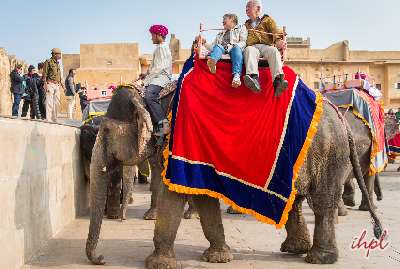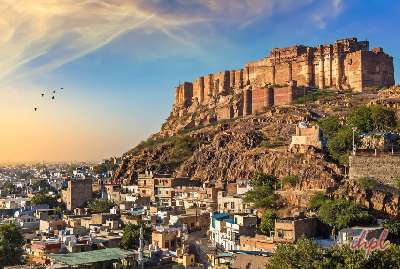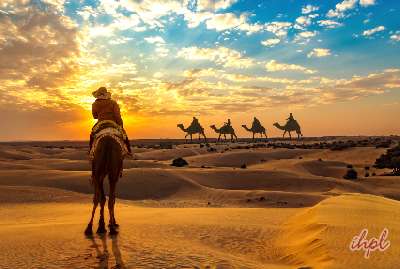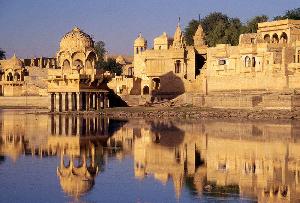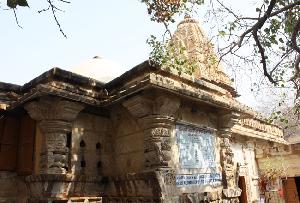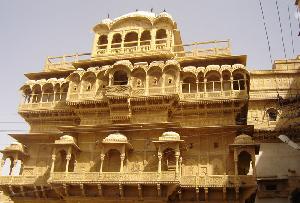The city of Jaisalmer has a rich history. It was founded in 1156 by one of the famous Bhatti Rajputs, Jaisal. The city also got its name from its founder.
Alauddin Khalji, a Turkic king of Delhi, presided over the First Jauhar of Jaisalmer in 1294. Bhatis’ raid on a giant treasure caravan being pulled by 3000 horses and mules catalyzed it. Local ballads claim that the Bhatis held the fort for eight years while the forces outside the walls busy themselves with sabotaging the besiegers’ supply routes. Rawal Jethsi passed away during the siege, and his son Mulraj II took over as ruler. Firuz Shah Tughluq, a Turkic monarch of Delhi in the late 14th century, also besieged Jaisalmer after a prince from Jaisalmer assaulted his camp at Anasagar Lake close to Ajmer and stole his prize steed. However, the Bhatis returned to the area in the fifteenth century and maintained some independence.
The “half Jauhar” of the prophecy was fulfilled in the 16th century when Afghan leader Amir Ali won Rawal Lunakaran’s approval to allow his brides to visit the Jaisalmer queens.
British Raj
The Rawal princes of Jaisalmer were promised the right to succeed to the throne when they signed a treaty with the British in 1818. One of the final Rajput states to make a treaty with the British was Jaisalmer, listed in various British papers as Jayulmir, Jessulmer, or Jesumere. To prevent war with Bikaner in 1829 and the First Anglo-Afghan War ten years later in 1839, Jaisalmer was forced to utilize the treaty’s clauses and enlist the British.
Jaisalmer served as the capital of the same-named princely state during the British Raj and was honored with a 15-gun salute. However, levies on caravans continued to be the kingdom’s primary source of revenue. During Maharawal Shalivahan Singh’s rule, a severe drought and subsequent famine from 1895 to 1900 only worsened matters by resulting in widespread livestock losses that the more agriculturally based kingdom depended upon.
In addition to failing to revive the kingdom’s economy, Maharawal Jawahir Singh’s (1914-49) attempts at modernization left the kingdom isolated and behind other regions of Rajasthan.
Importance of Monuments in history
One of the best places in the city to get detailed knowledge about the history of Jaisalmer is the Jaisalmer Fort. It was built in the year 1156. The fort is located atop Trikuta Hill. The fort had been a witness to several important battles. The fort has also earned a place in celluloid, as famous film director Satyajit Ray captured this fort for filming his film “Sonar Kella’. There are several attractions inside the fort. Witnessing the Raj Mahal, Laxminath temple, and the Jain Temples inside the fort is a great tourist experience.



